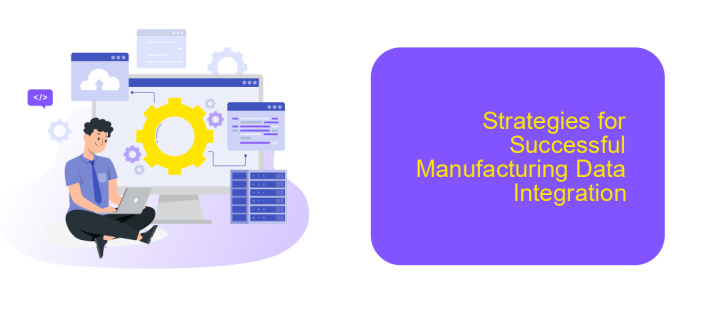Manufacturing Data Integration
In today's rapidly evolving industrial landscape, manufacturing data integration stands as a critical component for optimizing operations and enhancing productivity. By seamlessly connecting disparate data sources, manufacturers can gain real-time insights, streamline processes, and drive informed decision-making. This article explores the significance of data integration in manufacturing, its key benefits, and the technologies enabling this transformation.
Introduction
Manufacturing Data Integration has become a critical aspect of modern industrial operations, enabling seamless data flow across various systems and processes. By integrating data from multiple sources, manufacturers can achieve greater efficiency, accuracy, and decision-making capabilities. This integration not only helps in real-time monitoring and control but also supports predictive maintenance and quality management.
- Enhanced operational efficiency
- Improved decision-making processes
- Real-time monitoring and control
- Predictive maintenance
- Quality management
One of the key tools that facilitate manufacturing data integration is ApiX-Drive. This service allows for the easy setup of integrations between different systems without the need for extensive coding knowledge. By leveraging ApiX-Drive, manufacturers can streamline their data workflows, reduce manual errors, and ensure that critical information is always up-to-date and accessible. This ultimately leads to a more agile and responsive manufacturing environment.
Benefits of Integrating Manufacturing Data

Integrating manufacturing data offers numerous benefits that significantly enhance operational efficiency and decision-making processes. By consolidating data from various sources, manufacturers can achieve a unified view of their operations, leading to improved accuracy and consistency in data reporting. This integration facilitates real-time monitoring and analytics, enabling swift identification of issues and optimization opportunities. Consequently, manufacturers can reduce downtime, increase productivity, and ensure higher quality standards.
Moreover, integrating manufacturing data streamlines workflows by automating data transfer between systems, reducing manual entry errors and saving valuable time. Services like ApiX-Drive simplify this process by providing seamless integration solutions, allowing manufacturers to connect their data sources effortlessly. This enhanced connectivity supports better collaboration across departments and external partners, fostering a more agile and responsive manufacturing environment. Ultimately, these integrations empower manufacturers to make data-driven decisions, enhance customer satisfaction, and maintain a competitive edge in the market.
Challenges of Manufacturing Data Integration

Integrating data within the manufacturing sector is a complex and multifaceted challenge. The process involves synchronizing data from various sources, such as production lines, supply chain systems, and enterprise resource planning (ERP) software, to ensure seamless operations and decision-making. However, achieving this integration is often fraught with difficulties that can impede efficiency and productivity.
- Data Silos: Different departments and systems often operate in isolation, resulting in fragmented data that is difficult to consolidate.
- Legacy Systems: Many manufacturing facilities still use outdated technology that is not compatible with modern data integration solutions.
- Data Quality: Inconsistent data formats and inaccuracies can complicate the integration process, leading to unreliable insights.
- Security Concerns: Protecting sensitive information during data transfer is crucial, requiring robust security measures.
- Scalability: As manufacturing operations grow, the data integration solutions must be able to scale accordingly.
To address these challenges, services like ApiX-Drive can be instrumental. ApiX-Drive offers tools for automating data transfers and integrating various applications, thus bridging gaps between disparate systems. By leveraging such platforms, manufacturers can enhance data accuracy, improve operational efficiency, and ensure secure data handling.
Strategies for Successful Manufacturing Data Integration

Successful manufacturing data integration requires a well-planned strategy to ensure seamless data flow and operational efficiency. The first step is to assess the current data infrastructure and identify integration points. Understanding the data sources, formats, and communication protocols is crucial for a smooth integration process.
Next, it's essential to choose the right tools and technologies that support robust data integration. ApiX-Drive, for instance, is a versatile service that simplifies the integration of various systems by automating data transfer and synchronization. This tool can significantly reduce manual efforts and minimize errors.
- Conduct a thorough data audit to determine integration needs.
- Select appropriate integration tools like ApiX-Drive for automation.
- Ensure data security and compliance with industry standards.
- Regularly monitor and maintain the integration processes.
By following these strategies, manufacturers can achieve a cohesive data environment that enhances decision-making and operational efficiency. Continuous evaluation and adaptation of the integration process will ensure long-term success and scalability.
Conclusion
In conclusion, the integration of manufacturing data is a critical component in enhancing operational efficiency and decision-making within the industry. By seamlessly connecting various data sources and systems, manufacturers can achieve real-time visibility into their processes, enabling proactive management and optimization. This interconnected data environment not only reduces downtime and operational costs but also fosters innovation and continuous improvement.
Leveraging tools and services such as ApiX-Drive can significantly streamline the integration process. ApiX-Drive offers a user-friendly platform that facilitates the seamless connection of disparate systems without the need for extensive coding knowledge. By utilizing such services, manufacturers can ensure that their data integration efforts are both efficient and scalable, ultimately driving better business outcomes and maintaining a competitive edge in the market. The future of manufacturing lies in robust data integration, and with the right tools, this future is within reach.
FAQ
What is Manufacturing Data Integration?
Why is Manufacturing Data Integration important?
What challenges are commonly faced in Manufacturing Data Integration?
How can ApiX-Drive help with Manufacturing Data Integration?
What are the benefits of using automated tools for Manufacturing Data Integration?
Apix-Drive will help optimize business processes, save you from a lot of routine tasks and unnecessary costs for automation, attracting additional specialists. Try setting up a free test connection with ApiX-Drive and see for yourself. Now you have to think about where to invest the freed time and money!

